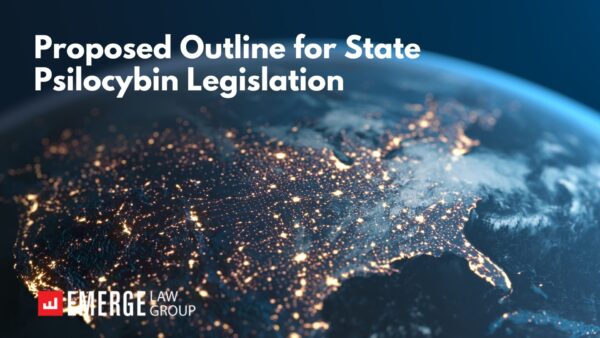One of the known beneficial uses of psilocybin is as a palliative care tool for patients with advanced illness who suffer from anxiety and/or depression. A multitude of recent clinical trials shows the clear promise of psilocybin for this population suffering from these debilitating conditions. However, this drug is not presently legally available, as it is classified as a Schedule I drug, severely restricted and regulated by the federal Controlled Substances Act. Accordingly, it cannot be prescribed by a physician and it is not legally accessible to those who might benefit from it as a therapeutic treatment.
Access Pursuant to the Oregon Psilocybin Services Act
Oregon’s Psilocybin Services Act(“PSA”), adopted via initiative in November 2020, makes therapeutic use of psilocybin legal under Oregon state law. Adult Oregonians will be able to access psilocybin therapy under the PSA beginning in January 2023; patients with advanced illness are among those who may benefit from this therapy.
The PSA sets out detailed requirements specifying who will be permitted to provide psilocybin therapy and where such therapy can take place. The provider of the therapy must be a licensed “facilitator” pursuant to the statute. Recommendations for the training required of such facilitators are being developed now by a Psilocybin Advisory Board established by the PSA. The Oregon Health Authority will receive these recommendations and adopt rules regarding requisite training, examination, and licensing of facilitators. Other than taking the training the OHA determines necessary and passing the required exam, facilitators need not have any other education or credential beyond a high school diploma to be certified as a facilitator.
Certainly, it is likely that some who pursue a facilitator license will have advanced education and/or credentials in a health care specialty. It is likely that some who are palliative care nurses, end-of-life care doulas, social workers, mental health counselors, and/or physicians will become licensed facilitators pursuant to the PSA.
Administration of the psilocybin and the experiencing of its effects must occur in a licensed “facilitation center”. A subsequent “integration session” must be offered to the client; however, participation in the integration session is not mandatory and this session need not be held at a facilitation center.
Patients with advanced illness who could benefit from psilocybin therapy, and who are able to visit a facilitation center, will be able to receive such therapy at a licensed center. As noted, the integration session could be conducted elsewhere, possibly at the patient’s home or at a clinician’s office. For patients with advanced illness, it would likely be desirable to seek psilocybin therapy from a facilitator knowledgeable in providing care to medically fragile patients with advanced illness. Such providers must of course be aware that while psilocybin therapy under Oregon’s new PSA law will be legal for state law purposes, psilocybin remains illegal under federal law. It is possible that a form of “cooperative federalism” will arise with regard to psilocybin therapy in Oregon. This is a policy where the federal government, the DEA, will refrain from taking prosecutorial action if state law permits, regulates, and carefully controls the use of a drug. The shelter provided by this approach depends on the policy of the U.S. Department of Justice, which can change as the political winds or officeholder changes—as occurred in the case of cannabis.
Access to Psilocybin Therapy Pursuant to Right to Try Laws
In recent years “Right to Try” laws have been adopted by a supermajority of states, including Oregon, and the Federal Congress. These laws recognize that patients with advanced illness ought to be able to access certain investigational drugs for therapeutic use before completion of later-stage clinical trials and the potentially long process of rescheduling. Psilocybin meets the requisites of RTT laws to be deemed an ‘eligible investigational drug’. Under the letter and spirit of these laws, it is intended to be available for this population of patients while still under investigation. Litigation to compel DEA to respect RTT laws and allow access to psilocybin for therapeutic use is pending before the Ninth Circuit Court of Appeals. If Petitioners prevail in this landmark case, access to psilocybin for patients with advanced illness will become available, protected by both state and federal law. Under this scenario, none of the requirements of the PSA would be applicable. Psilocybin therapy would likely be accessed through the patient’s palliative care physician who would obtain a form of permission from the DEA to obtain this investigational drug from a manufacturer. The therapy could take place wherever most convenient to the patient in light of their advanced illness, for example, if the patient were receiving hospice services at home, the therapy could be provided in the patient’s home, or at the office of the palliative care provider.
Conclusion
There is tremendous interest in the benefits of psilocybin for the relief of a variety of distressing mental health conditions, including anxiety and depression in patients with advanced illness. Oregon has stepped forward in enacting the nation’s first psilocybin therapy law, which will make such therapy legal under a heavily regulatory state law regime beginning in 2023; federal exposure will remain unless a policy of nonenforcement is adopted by the US DOJ. Right to Try laws may compel DEA to allow access sooner and more widely across the nation.




